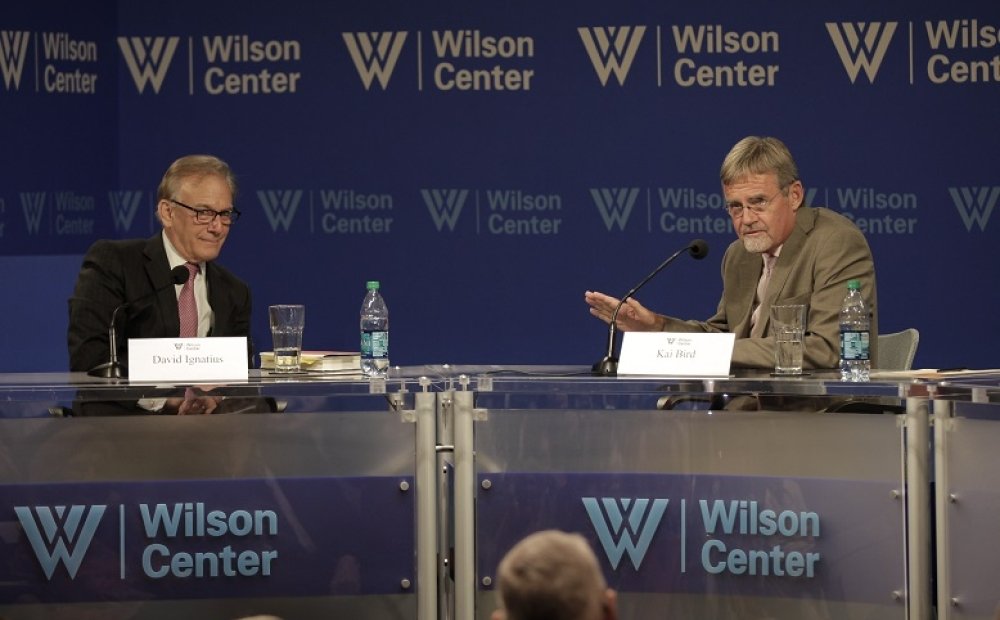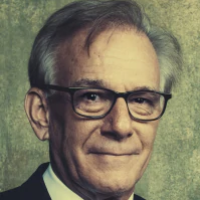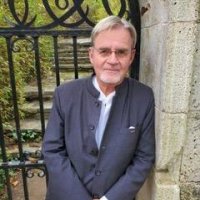The Good Spy: The Life and Death of Robert Ames

Pulitzer Prize-winning biographer Kai Bird had a conversation with Washington Post columnist David Ignatius to discuss Bird's biography, The Good Spy: The Life and Death of Robert Ames.
On May 22, 2014 the Middle East Program and the History and Public Policy Program of the Woodrow Wilson Center hosted a discussion “The Good Spy: The Life and Death of Robert Ames” with Bird, a former Wilson Center fellow, and Ignatius, a Washington Post associate editor. Haleh Esfandiari, Director of the Middle East Program at the Wilson Center, gave opening remarks for the event.
Ignatius began the interview by asking Bird to provide some background on Robert Ames for the audience. Ames was Bird’s neighbor when Bird was a child in Saudi Arabia. Bird described Ames as 6’3”, blonde, blue-eyed, and strikingly handsome, adding that Ames was friendly with an honest demeanor and had many friends and few enemies. Ignatius then asked Bird to discuss the role of Mustafa Zein, one of Ames’s close contacts. Zein was never a paid CIA agent, despite his valuable assistance to Ames. In spite of this, Bird noted that Ames sometimes stepped over the line of accepted CIA tradecraft and shared important information with Zein, and Palestine Liberation Organization’s (PLO) chief of intelligence Ali Hassan Salameh. Ames’s colleagues often criticized him for this, accusing Ames of losing his objectivity and getting too close to his assets. However, Bird commented that Ames’s ability to establish rapport with his contacts, instead of trying to exert control over them, was what made Ames such a successful agent.
Next Ignatius asked Bird to discuss the relationship between the CIA and the Israeli Mossad. Bird explained that the Israeli officers believed that Ali Hassan Salameh was a terrorist involved in the 1972 Summer Olympics attack in Munich that resulted in the death of 11 members of the Israeli Olympic team. Because of this, the Israelis wanted Salameh dead. They asked the CIA if Salameh was their man, but the CIA refused to answer. Salameh was eventually killed by a car bomb. As a follow-up, Ignatius asked Bird to comment on why the CIA refused to answer the Israelis. Bird stated that since Salameh was never a paid agent, the CIA could not claim that he was, and if they did, they feared that the Israelis might leak that information. Bird went on to say that many of Ames’s colleagues felt that giving no answer was a mistake on the part of the CIA. Bird felt that Salameh’s death was a tragic missed opportunity and that had he lived he might have taken the PLO more rapidly in a better direction.
Finally Ignatius asked Bird to share the end of the story of Robert Ames. Bird described how Ames rose very high in the ranks of the CIA. He was instrumental in the development of President Reagan’s 1982 Peace Plan and was often called to brief Reagan in the Oval Office or Camp David. On April 18, 1983, Ames traveled to the U.S. Embassy in Beirut and while there was killed by a truck bomb that also killed 8 other CIA agents and a total of 17 Americans.
Bird finished his talk by emphasizing Robert Ames’s faithfulness to American values and stated that Ames’s commitment to these values was what made him such a good agent. He added that these values should be the bedrock for all American operatives in order for the United States to have positive and effective relationships with other countries.
By Meg Kaiser, Middle East Program
Speakers


Director of the Leon Levy Center for Biography at the Graduate Center of the City University of New York
Hosted By

Middle East Program
The Wilson Center’s Middle East Program serves as a crucial resource for the policymaking community and beyond, providing analyses and research that helps inform US foreign policymaking, stimulates public debate, and expands knowledge about issues in the wider Middle East and North Africa (MENA) region. Read more


History and Public Policy Program
A leader in making key foreign policy records accessible and fostering informed scholarship, analysis, and discussion on international affairs, past and present. Read more
